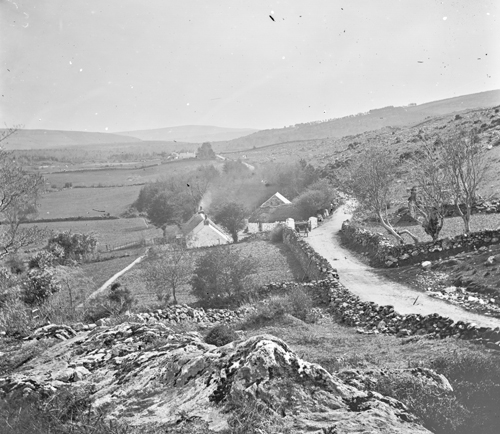Irish agriculture in depressed state as farming interests complain of post-war slump
Dublin, 20 March 1923 - Irish agriculture is in a much more depressed state in 1923 than it was in 1912, a TD speaking on behalf of the Irish Farmers’ Union (IFU) told the Agricultural Commission yesterday.
Mr. Richard Wilson, a Farmers’ Party TD for Kildare-Wicklow,
explained that the boost that the 1914-1918 war had given to Irish
agriculture had given way to rapidly reducing returns and
retrenchment on the part of farmers who had grown accustomed to
better standards of living. According to Mr. Wilson, the reasons
for this reversal of fortune came down to rising costs and falling
prices.
Mr. Wilson added, however, that his experience of farming was that
of the Wicklow district and that his observations might not apply
to every region of the country.
However, Mr. Frank Wood from Waterford, who also spoke to the Commission on behalf of the IFU gave evidence to the effect that it was impossible to make a large profit from farming. Mr. Wood said that it was impossible to grow cereals for food to compete with other countries and that an inclination towards grass farming was one reason for this.
In response to questioning from the Labour leader, Mr. Thomas Johnson, Mr. Wood said that in the southern counties a large number of men would be employed more profitably in the cleaning of land, ditches etc in connection with grass farming than in the tilling of the land.
This month has also seen the Irish Farmers’ Union stage their own annual congress, which was presided over by Senator R.A. Butler. The Congress heard evidence of the ongoing slump in prices and the high costs of rail transport.
But there was criticism, too, of the Provisional Government for leaving farmers ‘hopeless in the hands of Red flagmen’ in Co. Tipperary when workers took possession of the Messrs Cleeves’ factory in May 1922. On that occasion, the IFU had tried to get farmers to stop supplying milk to the creamery, but succeeded only in getting about half of them to do so. What followed, according to Mr. Heffernan of South Tipperary, was the intimidation of farmers, attacks on houses, the smashing of milk cans and separators and the spilling of milk into field and roadways.
Mr Heffernan claimed that farmers had suffered heavy losses as a result of this incident and their appeals to the Government were met only with evasive answers.
The IFU Congress also addressed issues of agricultural education and the programme of the Farmers Party. The Congress, which approved a vote of thanks for the work done by Farmers’ Party representatives in the Dáil, unanimously approved that the division of large grass holdings be added as a central plank in the party’s programme.
It was further decided that the Farmers’ Party should support measures to reduce unemployment through productive work in drainage and afforestation.
Recently, the Minister of Agriculture in the Free State government, Mr. Patrick Hogan, was required to summon a conference to address the issue of agricultural wages in respect of a dispute in Co. Dublin.
Rates of pay across much of the country are reported to be 36s per
week and 34s for the
north-eastern area. Those rates represent 4s per week less
than was enjoyed by workers two years ago. However, Co. Dublin
farmers are understood to be faced with a reduction of 7s per
week.
[Editor's note: This is an article from Century Ireland, a fortnightly online newspaper, written from the perspective of a journalist 100 years ago, based on news reports of the time.]





















